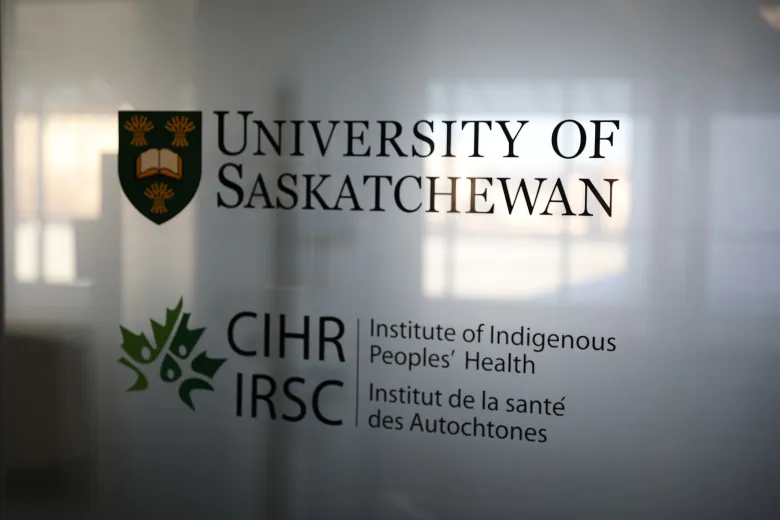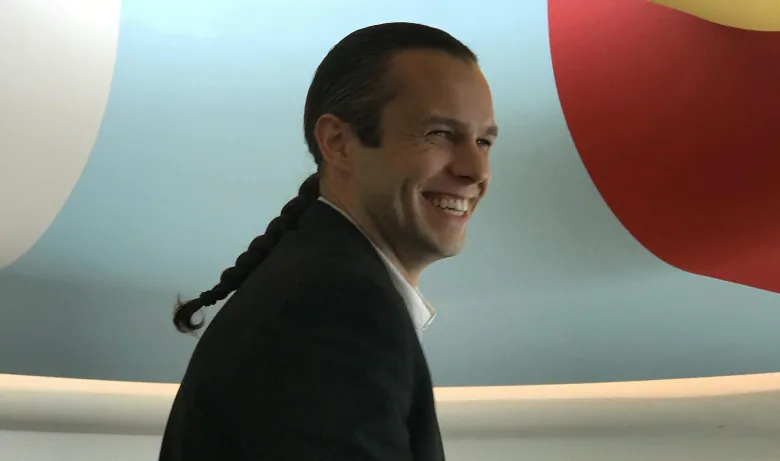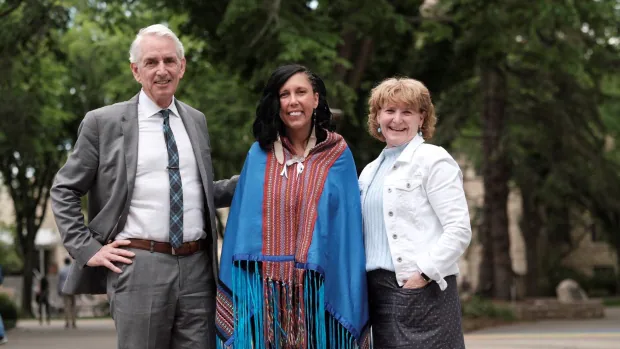The University of Saskatchewan and the Canadian Institutes of Health Research (CIHR) continue to stand by Carrie Bourassa, despite a CBC investigation that shows her claims to Indigenous ancestry are spurious.
For years, the U of S professor, who also serves as the scientific director of the Indigenous arm of the CIHR, has claimed to be Métis, Anishnaabe and Tlingit. However, investigations by Indigenous scholars and the CBC found there’s no evidence of that.
After being confronted with the findings of CBC’s investigation, Bourassa changed her story in an emailed response before CBC’s investigation was published, claiming she is Métis because she was adopted by a Métis friend of her grandfather when she was in her early 20s. That appears to directly contradict many of her previous public claims.
In a Saskatoon StarPhoenix article published Saturday, Bourassa said she doesn’t have documentation to prove her many claims to Indigeneity but she insists she’s not lying. She said she hired a genealogist two years ago to help her look for evidence, and that work is ongoing.
When asked about her public assertion that her great-grandmother was Tlingit, Bourassa said she hopes to find evidence at some point.
“I maybe will be able to find a Tlingit ancestor somewhere. Maybe I will, maybe I won’t,” she told the StarPhoenix.
Bourassa has continually declined CBC’s requests for an interview. On Saturday, she said she is now directing all inquiries to her public relations representative.
Despite all of that, after CBC’s story was published, the U of S and the CIHR issued statements of support for Bourassa.
Institutions stand by Bourassa
In an email on Wednesday, after CBC’s investigation was published, the CIHR said it “values the work of the Institute of Indigenous Peoples’ Health under Dr. Carrie Bourassa’s leadership.”
“On the question of Dr. Bourassa’s identity, we recognize that Indigenous identity is complex, multifaceted and deeply personal and we support Indigenous self-identification.”
This means the CIHR deems someone is truly Indigenous if they claim they are, relying on what is essentially an honour system.
In its statement, the U of S, located in Saskatoon, said it recognizes that “self-identification is no longer sufficient for Indigenous-specific appointments.” However, the university said Bourassa wasn’t hired based on her claims to Indigeneity.
“Professor Bourassa was not hired by the university because of her Indigenous status, and Indigenous ancestry was not a requirement of the role,” the university’s provost and vice-president, academic, Airini, said in the statement. “The quality of Professor Bourassa’s scholarly work speaks for itself and has greatly benefited the health of communities across Canada,”

Calls for Bourassa’s dismissal
This baffles many Indigenous academics, such as Raven Sinclair from the University of Regina, who says the CIHR and the U of S have left Indigenous academics in an “untenable position.”
“It’s inconceivable that we have a non-Indigenous person representing us at that level of academe. And representing us based on lies, based on untruths,” she said.

Sinclair, a Cree, Assiniboine and Saulteaux woman from the George Gordon First Nation, says because of that deception, Bourassa should do the right thing and resign, or she should be forced to go.
“There are people in the [United] States who have been asked to resign or be terminated because of fraudulent identity claims. And I’m not really sure why our institutions are any different,” she said.
The lack of action from the university infuriates U of S Indigenous studies professor Winona Wheeler, who was part of a group of professors who investigated Bourassa’s genealogy.
“She lied about her identity. She lied,” said Wheeler, who is a member of Manitoba’s Fisher River Cree Nation. “And the university is defending that.”
Wheeler said no matter how much good Bourassa has done through her research and leadership, the university has no business supporting her now that the truth is known.
“The university is in a position where they are expected to uphold integrity. Integrity in our research — and not just research, but integrity in our relationships, integrity in how we present ourselves,” she said. “The university is supporting and defending a liar. That then speaks to the university’s integrity.”
In its statement, the U of S said that “our intention remains to be transparent, open, respectful, and willing to learn so we can move forward together in meaningful, collaborative ways.”
But Wheeler says that doesn’t ring true, pointing out that the institution has known about Bourassa’s deception for months. A detailed formal complaint from a Métis professor at the U of S was submitted to the university administration, along with pages of evidence. According to Bourassa, the university dismissed that complaint.
“They could have addressed this months ago, but they brushed us off. So I don’t believe them,” Wheeler said. “We told them, ‘You’re gonna have a blowup here some time.'”
‘They’re closing their eyes to the lie’
While both the U of S and the CIHR say it is up to Indigenous people to determine who is truly Indigenous, retired Cree lawyer Michelle Good says their actions don’t match their words.
She points out that Bourassa has publicly admitted she’s not a citizen of the Métis Nation—Saskatchewan (MNS).
And yet in a public statement issued after CBC’s story was published, MNS president Glen McCallum said, “In Saskatchewan, determining ‘Who is a Métis Citizen’ is the sole determination of the Métis Nation—Saskatchewan and no one else.”
Good, the author of Five Little Indians, winner of the 2020 Governor General’s Literary Award for English-language fiction, said given Bourassa’s admission and the MHS statement, she wonders why the U of S and the CIHR are accepting Bourassa’s claim that she’s Métis.

“If a person cannot even meet the standard of what the Métis people have set for being Métis, how can we possibly accept that they’re Métis?” Good said.
She said it’s incredible that in the face of CBC’s investigation and Bourassa’s admissions, the university and the CIHR have decided to support her.
“They’re closing their eyes to the lie, and instead of acknowledging that there was a fundamental dishonesty at the very beginning of all of this with Dr. Bourassa, they’re retreating,” Good said.
Self-identification no longer sufficient
Darryl Leroux, a non-Indigenous professor at Saint Mary’s University in Halifax who has written extensively on issues of so-called race-shifting, says it’s stunning that Canadian institutions continue to think self-identification is sufficient.
Many stories of people falsely assuming Indigenous ancestry have come to national prominence in recent years, and a number of high-profile scandals have prompted calls for increased accountability.
“Self-identification can no longer be used as a sole basis of claims to Indigenous identity because of the rampant fraud that is going on right now,” he said.
Leroux said he’s shocked that the CIHR, a federal agency that funds much of the Indigenous research in Canada, is willing to stand by Bourassa despite her admitted falsehoods.
“CIHR is seen as one of the leaders in developing rigorous ethical protocols, particularly when it comes to research with Indigenous people,” he said. “The fact that they have someone who’s the lead on research funding for Indigenous health, who is involved in such deceit and lack of integrity, I think puts that whole apparatus into question.”
Leroux said Bourassa leads an organization that provides much of the funding for Indigenous research across the country — including funding for projects involving Wheeler and Métis professors Caroline Tait and Janet Smylie, who all spoke out publicly against Bourassa in CBC’s investigation.

“So she has a say — and I’m not sure exactly to what extent — but over who gets research funding,” he said. “And we’re talking about some of these projects for millions of dollars.”
Speaking up, despite risk
Jaris Swidrovich, an assistant professor of pharmacy at the University of Toronto, was so troubled by what CBC found that he decided to publicly speak out, despite the fact that he relies on the CIHR’s Indigenous arm under Bourassa’s leadership to fund his research.
He said for years he was led to believe that the organization was run by Indigenous people for Indigenous people.
“We are all quite familiar with the saying ‘nothing about us without us.’ And I felt that was being followed when it came to the Institute for Indigenous Peoples’ Health,” he said.

Swidrovich, of Saulteaux and Ukrainian ancestry, said he feels betrayed and sickened after the revelations about Bourassa. And he feels compelled to speak up.
“This is really scary…. Especially for pre-tenured academics like myself. We’re put in a really tough position when it comes to speaking up for what is right versus … in balance with our own careers,” he said. “I’m worried that my career trajectory, like many others, could be impacted by speaking up for what’s right.”
But Swidrovich said the issues at stake are so fundamental that silence isn’t an option.
“I need to remind myself who am I here for? Why am I on this path? And what is my responsibility as an Indigenous academic? And that’s to my community and my people,” he said. “So as scary and as difficult as it is to put myself out there, I have to.”


